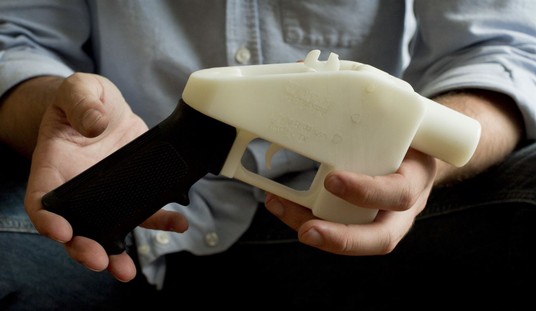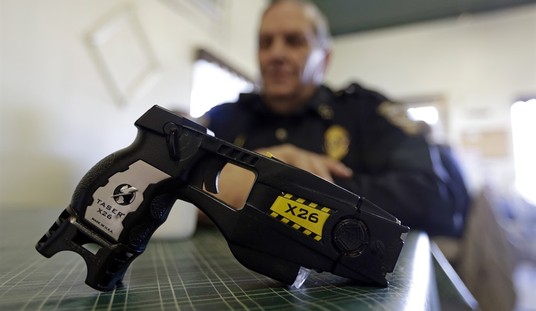I was hoping to have Bearing Arms contributor, Second Amendment advocate, school safety activist, and Florida Board of Education member Ryan Petty join me on Cam & Co yesterday to detail what Florida is doing to keep students safe without infringing on the constitutional rights of residents, but as it turns out he was in a BoE meeting where school safety was one of the main topics of discussion. Thankfully Ryan was able to carve out a few minutes of a very busy schedule to sit down with me for today’s show, where we discussed several of the programs underway in the state that are paying major dividends in terms of school safety.
While most of our conversation centered around the state’s behavioral threat assessments, which are a part of every public school in the state and, according to Petty have thwarted dozens of planned or attempted acts of violence on school grounds, we also discussed a program spearheaded by Florida’s First Lady Casey DeSantis. The Resiliency Florida Initiative was first announced back in October of 2021, and over the past couple of years DeSantis and allies have been working on a framework to help kids learn how to better handle life’s stresses, which can often be a trigger for targeted attacks on campus. As Gov. Ron DeSantis’s office outlined back in March:
The newly adopted standards incorporate key resiliency skills, including: grit, perseverance, gratitude, personal responsibility, volunteerism, critical thinking, problem-solving, empathy, citizenship and honesty. At the event, First Lady DeSantis also announced more than $21 million in dedicated funding to create and distribute resiliency curriculum, including parent and teacher toolkits.
As a part of Florida’s focus on resiliency, the state is also taking a first-of-its-kind approach to incentivize parental involvement in schools. As announced by the First Lady and Commissioner Manny Diaz, Jr. the Department of Education is going to immediately create four new pathways for parents to serve in their schools and for educators take resiliency to the next level as resiliency coaches, mentors, school counselor apprentices, and resiliency educators.
“As a mama of three little ones, I am proud that Florida is leading the nation in education, and I am thrilled to see how our efforts to reframe and rethink mental health will equip our students and future Floridians to be more resilient,” said First Lady Casey DeSantis. “We also know that by incentivizing parental involvement in schools, our students will benefit academically and culturally from the positive influence of mentorship.”
“First Lady Casey DeSantis continues to champion Florida’s students and families,” said Florida Commissioner of Education Manny Diaz, Jr. “Because of her leadership, the State Board of Education passed innovative resiliency standards today, that will help students in all grades develop personal responsibility, grit and other important skills to help them succeed in school and life.”
I confess that I was completely unaware of this initiative until Ryan brought it to my attention on today’s show, but I’m very glad to see that the DeSantis administration is taking an interest in giving kids the tools they need to navigate the hurdles that life will inevitably throw their way, from academic stresses to bullying to broken homes. Many of the targeted attacks that we’ve seen on schools and students were committed by individuals whose inner despair was directed outwards in rage towards innocent victims, and by helping every child in Florida’s public schools learn how to survive and thrive during times of great adversity, I think this program could play a major role in preventing these attacks from ever being plotted in the first place, much less carried out.
Petty notes that the resilience initiative isn’t designed to replace parents, churches, or other civic institutions that have traditionally taught these skills. Instead, parents and community members can be a part of these efforts by becoming resiliency coaches, which DeSantis describes as the “first layer of support to students facing day-to-day challenges.” As Petty says, government isn’t the answer to solving our problems, but this seems to be more of an effort to facilitate parental involvement rather than pushing them away and demanding that the public school system take over.
Just like the behavioral threat assessments, the resiliency initiative focuses on individuals and not inanimate objects, which is a much better approach when we’re trying to both protect and change lives than trying to ban our way to safety. I hope you’ll check out the entire conversation with Ryan Petty in the video window below, and I’d encourage you to reach out to your own local school boards and state department of educations to push for these same types of programs in your area. These efforts are already saving lives, and there’s no reason why other states shouldn’t be following Florida’s lead in protecting kids at school without infringing on anyone’s civil rights.









Join the conversation as a VIP Member